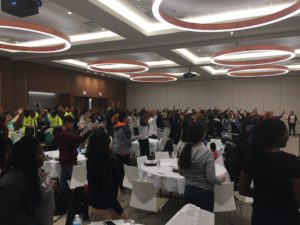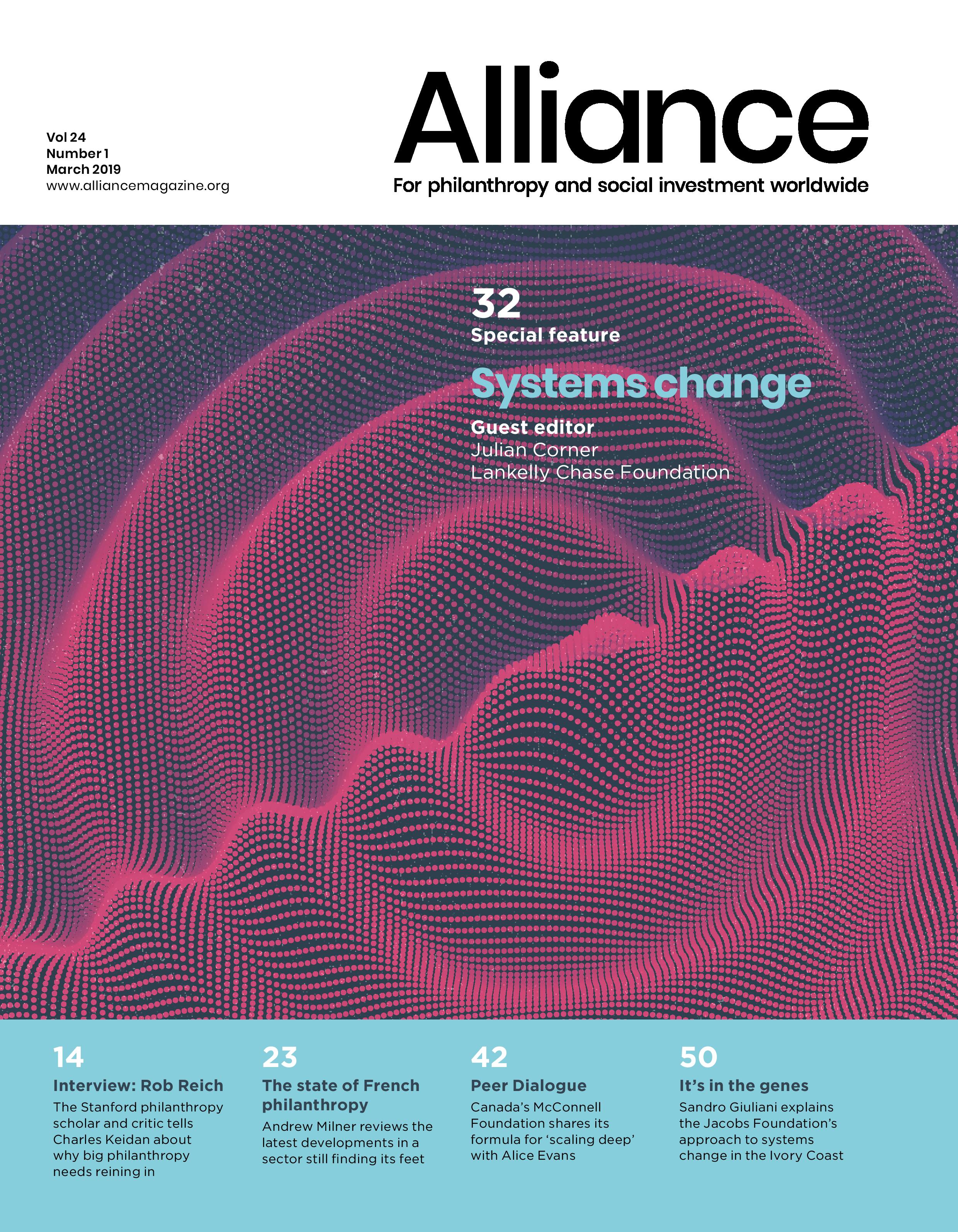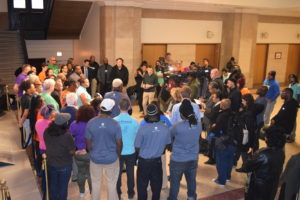Funders and communities working together in Chicago show that collaborations can perform effectively and quickly if the need is urgent and trust is established

More than 1,000 community members were consulted during meetings held across Chicago in the winter of 2016.
Chicago is facing dual crises of increasing gun violence and eroding police legitimacy. In 2016, there was a 58 per cent increase in shootings and 284 more gun homicides than the previous year, representing nearly half the nation’s total increase in urban murders. Chicago Police Department (CPD) solved fewer than 1 in 5 of those murders. In response to the police shooting of teenager Laquan McDonald, the Police Accountability Task Force (PATF) and later the US Department of Justice issued reports that identified systemic issues within CPD training and operations, as well as patterns of unconstitutional, excessive force and deep community mistrust of the police.
A system-wide solution was needed. It was in this urgent context that the five funders of the PATF – Chicago Community Trust, Joyce Foundation, MacArthur Foundation, McCormick Foundation, and Polk Bros. Foundation – came together to determine how we could leverage our resources to help significantly reduce gun violence within two to three years.
We remained committed to a true community engagement process in which community members deeply affected by police violence drafted recommendations for an official city ordinance that reflects their thoughts, experiences and desired outcomes.
Genuine community involvement
Understanding that the bedrock of true reform is authentic community involvement, we knew it was important to include a foundation partner with deep connections to Chicago’s community organisers. We asked Woods Fund Chicago, which supports community organising and advocacy to advance racial equity and social justice, to join us. Woods Fund then brought together its grantees with a history of addressing criminal justice reform or police reform to consider the development of a citywide coalition.
Ultimately these organisations aligned under the Grassroots Alliance for Police Accountability (GAPA), convened by UCCRO, a Woods Fund grantee that has worked to bring together a coalition of voices on issues around racial inequity, human rights and structural racism since 2005 and participated in the earliest GAPA discussions. UCCRO’s prior coalition experience made it a natural convener for this cross-city effort.
Urgency, trust and freedom
We all knew there was both a dire need and a momentum for positive change. Over several weeks, the foundations and community groups met in various formats – together and separately, with PATF members, community residents, reform experts and those who have introduced community oversight in other cities – and we developed a commitment to each other and to making change. We all had different strengths and roles to play and needed to trust that each would pursue them with integrity. The foundations provided significant financial and intellectual resources to GAPA’s development, but gave the community organisations complete freedom to pursue the work.
We have worked through challenging conversations, varying approaches to the work, organisational and coalition changes, and significant shifts in the political world. These dynamics are a strength and a challenge for the GAPA alliance.
GAPA’s work has been difficult and complicated, yet rewarding. We remained committed to a true community engagement process in which community members deeply affected by police violence drafted recommendations for an official city ordinance that reflects their thoughts, experiences and desired outcomes. GAPA engaged over 2,000 community members with approximately 60 community leaders from various communities. There have been more than 100 community meetings and trainings to develop these recommendations which would give the community a formal role in oversight of the police department. Together, we have worked through challenging conversations, varying approaches to the work, organisational and coalition changes, and significant shifts in the political world. These dynamics are a strength and a challenge for the GAPA alliance.
In March 2018, GAPA issued a report encapsulating the communities’ recommendations and is now working with local aldermen to advance an ordinance to ensure successful implementation of a community safety oversight board that is responsive to all Chicago stakeholders.
As GAPA’s work unfolded, the overall collaboration among funders evolved. More and more funders began to support GAPA and also other efforts, and the collaboration, now called the Partnership for Safe and Peaceful Communities (PSPC), coalesced and aligned resources around four evidence-based approaches to reducing gun violence: direct services for those at highest risk, including street outreach, therapy and transitional jobs; police reform and community engagement; gun policy reform; and a rapid-response fund for community-led activities. Today we have nearly three dozen funders and have collectively committed more than $50 million to efforts within these four strategies.
The lessons
We have learned several things about making this work.
To avoid getting bogged down on an urgent issue by different cultures and priorities, we made, as funders, a few upfront agreements. We aligned around an overall framework for PSPC which allowed each funder to directly support efforts that fit their own goals. We could make quick decisions by having senior leaders at the table along with programme leads. And we agreed to bring new resources to these efforts rather than reallocating from existing efforts. For example, at Polk Bros. Foundation, where our grantmaking focuses on the complex roots and devastating effects of poverty and inequity, our board of directors agreed a considerable overspend to engage fully in addressing PSPC gun violence reduction strategies. We also let PSPC grow and adapt, as needed. For example, we have begun bringing a more explicit racial equity focus into the work, acknowledging that even with our urgent time horizon of two to three years, we can’t ignore systemic causes for violence.
We are optimistic that the investments of the last two years are beginning to help reduce gun violence, transform systems so that they are informed by community need, and support safe, thriving communities. For the second year in a row, shootings and homicides have dropped, reportedly by 18 and 15 per cent respectively. Gun violence is everyone’s crisis, and no single approach will solve it alone. We see this early-stage funding as our contribution to a comprehensive, citywide violence reduction plan for Chicago.
Gillian Darlow is CEO of Polk Bros. Foundation.
Email: gdarlow@polkbrosfdn.org
Twitter: @PolkBrosFdn
Grace Hou is president of Woods Fund Chicago.
Email: grace@woodsfund.org
Twitter: @WoodsFundChi
Mecole Jordan is executive director of UCCRO.
Email: mjordan@unitedcongress.org
Twitter: @uccro







Comments (0)